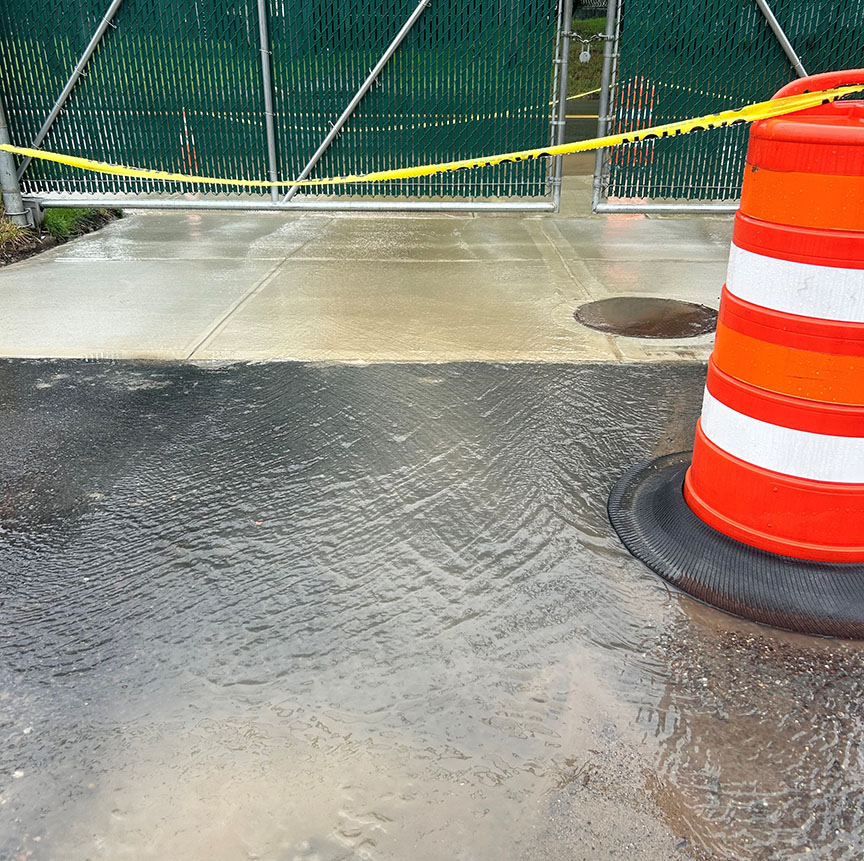Your Guide to Stormwater Management and General Permits, Part 3
Do you need help figuring out how stormwater regulations apply to your operation? Walden’s stormwater team can help you make sense of the requirements! In recent weeks, we’ve posted Parts 1 and 2 in this stormwater blog series, which detail the importance of stormwater regulations and the permitting process, respectively. Visit those posts for more background, and keep reading below to learn about additional important aspects of stormwater permitting.
Who do stormwater regulations apply to?
Most organizations that perform work requiring coverage will need coverage under what is called the Multi-Sector General Permit (MSGP). This could apply to a myriad of businesses, from construction companies and manufacturers to municipalities and waste handlers. If your activities normally involve the generation of waste or pollutants that could harm local waterways, you may need some type of permit. Material, equipment, and general maintenance at facilities can contribute to exposure risks.
What else do I need to do?
If your organization wants to be covered under a general permit, you will be required to write, maintain, and implement a Stormwater Pollution Prevention Plan (SWPPP). This plan must be submitted with your Notice of Intent (NOI) so the regulating body can determine if your control measures will be acceptable.
What is a NOI?
A NOI serves as an organization’s official notice to a regulating body that they wish to be covered under a general permit to discharge potentially contaminated stormwater into collection structures or systems that discharge to local waterways. The organization must read, understand, and comply with the conditions detailed in the general permit, as failure to do so could result in costly enforcement action. A separate NOI must be completed for each facility.
What goes into a SWPPP?
A thorough SWPPP should contain an assessment of all the operations performed at the facility and broadly address the following questions:
- What materials are used and stored at the facility, and which are exposed to precipitation?
- What potential pollutants are contained in these materials?
- What steps are currently being taken to minimize the exposure of these materials to precipitation and stormwater runoff?
- What additional opportunities (“Best Management Practices” or BMPs) are there to reduce or eliminate the amount of material exposed to precipitation and stormwater runoff?
- Which facility operations have the potential to impact the quality of stormwater?
Each organization must designate a Pollution Prevention Team to develop, execute, and periodically review the SWPPP. Your SWPPP should detail what you intend to do to follow the regulations. Facility inspections to evaluate practices and procedures must be performed by a qualified person on a quarterly basis.
The SWPPP should include plans to maintain and repair equipment, methods to address leaks, a robust training and education component, and spill prevention and response procedures.
What is a general permit, anyway?
A general permit is not issued to any specific organization or facility. Rather, it is intended to cover multiple organizations that are similar in size and scope and, hence, generate similar discharges based on activities. Important note: the EPA reissued the MSGP in 2021, which will expire in 2026. For more information on the current general permit (the MSGP), click here.
The general permit goes into detail about how an entity obtains coverage, provides guidance in implementing the plan to support coverage under the permit, explains what records must be kept, and includes other information to help organizations effectively launch pertinent internal processes and procedures.
Do not confuse the general permit with an “individual” permit, which is specific to an organization or facility and requires much more in-depth applications to regulatory agencies. They can often take months to be approved and include site-specific discharge limits and monitoring requirements. Conversely, general permits are applicable to numerous organizations, and you can usually get coverage quickly and apply for it online.
In closing
It is important to ensure you have the appropriate stormwater permits for your business: some regulatory agencies are known to make surprise inspections of facilities. If you are not in compliance with applicable regulations, those inspections could result in costly fines or, worse, facility closures.
Remember that the Clean Water Act and accompanying permit programs were enacted to protect and improve water quality. Complying with regulatory stormwater management and permitting requirements will help your operation do its part to protect our water.
The first step in ensuring compliance is to understand what permit(s) apply to your specific facility. An experienced consultant like Walden can help you make this determination. Download our complete stormwater guide here, and contact us at 516-980-5508 to discuss your facility’s needs with our stormwater experts today.

Visit Parts 1 and 2 in this series or download Walden’s complete stormwater guide for more information. Contact us at 516-980-5508 to speak with an experienced consultant about stormwater management at your facility.

